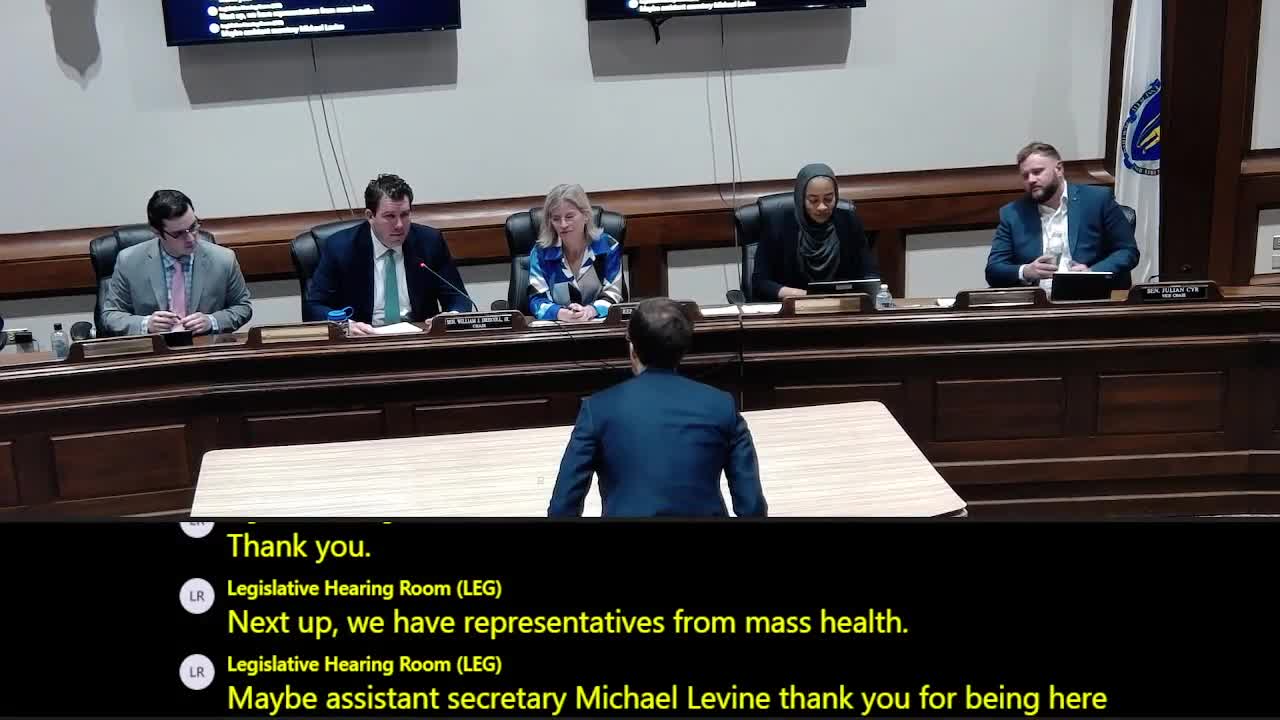MassHealth outlines primary‑care and behavioral‑health investments and warns of federal Medicaid uncertainty
Get AI-powered insights, summaries, and transcripts
Subscribe
Summary
Assistant Secretary Michael Levine briefed lawmakers on MassHealth priorities — equity, primary‑care sub‑capitation, behavioral‑health community centers, rebalancing toward home care — and said federal Medicaid cuts would pose major risks to state spending and coverage.
Assistant Secretary Michael Levine told the Joint Committee on Public Health that MassHealth covers roughly one in four Massachusetts residents and that the agency is focused on health equity, primary‑care payment reform, behavioral‑health access and member experience.
Levine said MassHealth’s annual spending is about $21 billion, of which roughly $14 billion is federal funding; the state general fund net cost is approximately $8 billion. He described program priorities: expanding doula services and remote patient monitoring for perinatal populations; two years into a primary‑care sub‑capitation program that pays about 1,000 practices monthly to support expanded access; and behavioral‑health reforms including community behavioral health centers offering 24/7 crisis access that have reduced psychiatric boarding in emergency departments by more than half over two years.
Levine warned that potential federal reductions in Medicaid financing would create uncertainty across states. “If you’re going down a path where you’re trying to pull hundreds of billions of dollars out of safety‑net health care across the state, we’re gonna have a lot to talk about,” he said, noting MassHealth enrollment remains above pre‑pandemic levels by roughly 250,000 members.
Why it matters: MassHealth is a major purchaser and provider network partner for hospitals, community health centers and behavioral‑health providers; changes in federal funding would affect tens of billions in annual spending and could force program adjustments.
What’s next: Levine said MassHealth will work with the legislature to preserve coverage and continue program reforms; committee members asked for continued collaboration and pressed for contingency planning in the event of federal changes.
